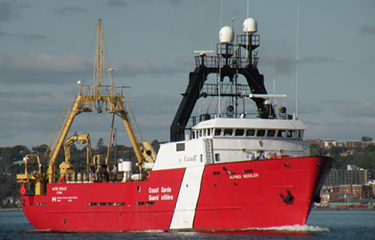Canada’s Department of Fisheries and Oceans (DFO) has rolled over the maximum allowable harvest (MAH) for the 2J3KL Northern Cod Stewardship fishery due to a lack of recent survey data, a move harvesters claim ignores other existing data on the stock.
The DFO announced the 2J3KL Northern Cod Stewardship, located off the coast of the province of Newfoundland and Labrador, will have a MAH of 12,999 metric tons (MT) in 2023. That amount is completely unchanged from the total in 2022, a fact that the Fish Food and Allied Workers Union (FFAW), which represents harvesters in the province, said ignores the data on the fishery.
“The entire industry was hopeful for – and were depending on – an increase to the northern cod quota this year. We had provincial support for this request as well as support from our provincial MPs,” FFAW President Greg Pretty said in a release. “Thousands of people rely on this fishery for their livelihood, more so this year than ever before. A small increase would go a long way, and we’re certainly dismayed that Minister [of Fisheries, Oceans and the Canadian Coast Guard Joyce] Murray chose to roll over this quota rather than look at all the information available.”
According to the FFAW, harvesters and processors alike have considered the northern cod stock to be one of the province’s best fisheries in terms of both quality and catch rates – and both groups were also looking for more product.
The reason for the quota rollover, according to the DFO, was a lack of new surveys on the stock. The Covid-19 pandemic caused issues with research surveys, and research vessel breakdowns compounded the issues. Then in February 2023 the DFO announced the vessel that performed cod stock surveys for 40 years, the Alfred Needler, was beyond repair after a number of significant mechanical and structural failures. Further investment in the vessel, the DFO said, would “not allow it to return to a reliable and safe service.”
The lack of a suitable vessel to perform the survey has left the DFO without any recent stock assessment information – which led the department to roll over the previous quota.
While the DFO did not have research vessel (RV) data, the FFAW said, there are still other sources of data such as cod tagging, catch rates, and sentinel survey data – which the union claims the DFO didn’t use.
“Quite frankly, it’s alarming that DFO has failed to use all the data they have currently available to them in spite of failing to complete their RV survey the last few years. And once again, the working people of our province bear that burden,” Pretty said. “The federal minister must guarantee that surveys will be complete this fall in preparation for next year’s decision, which are critically important to the future of the stock and our commercial fishery.”
Pretty said the stock has come a long way from past issues and the harvesters only want a modest increase to benefit the economy of the province.
“DFO’s approach is contradictory and the science is glaringly weak,” he said. “Both processing workers and harvesters alike are counting on this fishery, and Minister Murray’s decision today is going to harm our communities and our inshore fishery.”
Photo courtesy of the Department of Fisheries and Oceans







